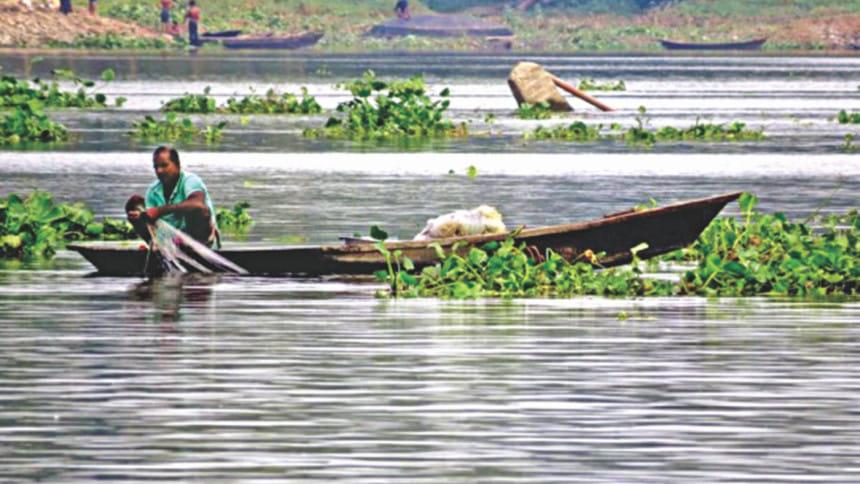Rivers are now 'legal persons'

Taking duly into account a report titled “Time to declare Turag dead” was published in The Daily Star on November 6, 2016, Human Rights and Peace for Bangladesh (HRPB) filed a writ petition challenging legality of earth-filling, encroachment and construction of structures along the banks of river Turag. On November 9 of the same year, a High Court Division (HCD) bench directed the government to stop the challenged acts of earth-filling, encroachment and construction along the banks of Turag, and to submit a report after complying with the order. It also issued a rule upon authorities concerned to explain as to why their inaction to stop such activities would not be declared illegal.
In response to the foregoing, in October 2017, chief judicial magistrate of Gazipur submitted a report before the HCD, saying 30 structures were set up illegally along the banks of the river in Gazipur. On December 13, 2017, the HCD directed authorities to demolish the structures immediately.
The High Court on January 30, 2019, started delivering its verdict on the writ petition filed in 2016. The bench comprised of Justices Moyeenul Islam Chowdhury and Md Ashraful Kamal.
Four fundamental decisions were taken by the court
* In pursuance of the doctrine of public trust, the court declared that State shall perform responsibilities of a trustee in respect with all the rivers, sea, mountains, forests, lakes, ponds and other receptacles of water within the territory of the State.
* In pursuance of its parens patriae jurisdiction, the court accorded 'living entity' status to Turag and asked the concerned authorities to remove all the structures from its banks in next thirty days. The Court also said that the status will be applicable for all the rivers of the country.
* National River Protection Commission is declared by the court as the legal guardian of all the rivers of the country.
* From now on, National River Protection Commission will take necessary measures to protect all the rivers of the country.
“Governments of different countries are trying to protect rivers through enacting laws. If there'd been no directive in the form of verdict, there might have been high rises over the Buriganga River or a housing estate of an illegal grabber over the Turag River,” the Court added.
Certain directives have also been given through the judgment in order to ensure better protection of the rivers. Some of them are as follows-
* The government is directed to amend the National River Protection Commission Act 2013 for making the National River Protection Commission effective and independent and to submit a report after complying with the order before this court in six months.
* Election Commission is directed not to allow any person accused of grabbing river land to contest any election including local government and parliamentary polls.
* Bangladesh Bank is directed to take steps so that any person, accused of grabbing river land, cannot borrow money from banks.
* The Ministry of Education is asked to take steps so that an hour-long class is taken once in two months in all government and private academic institutions including schools, colleges, universities and madrasahs in order to raise awareness regarding the rivers.
* The Ministry of Industries is asked to take necessary steps so that meetings are held for at least one hour in every two months among the labourers of mills and factories across the country for raising awareness concerning the protection of rivers.
Regarding the recognition of river as 'legal and juristic person', it will not be out of place to note that for the first time, a New Zealand river revered by the Maori indigenous group was recognised by New Zealand parliament as a 'legal person'. This legislative move was seen as a never-before-seen combination of Western legal thoughts with Maori mysticism and spiritualism. "[It] will have its own legal identity with all the corresponding rights, duties and liabilities of a legal person," Attorney-General Chris Finlayson said.
In India in 2017, the river Ganges - worshipped in Hinduism as "Ganga Mata" or mother and its tributary the Yamuna were declared as having the status of legal person by the High Court of Uttarakhand. But Uttarakhand's state government took the issue to the Supreme Court arguing that the declaration was legally unsustainable because the ruling simply was not practical and could lead to complicated legal situations like claims against the rivers in cases of flooding or drowning.
The Supreme Court of India took those objections into account and in the same year, overturned the earlier ruling by Uttarakhand High Court.

 For all latest news, follow The Daily Star's Google News channel.
For all latest news, follow The Daily Star's Google News channel. 



Comments